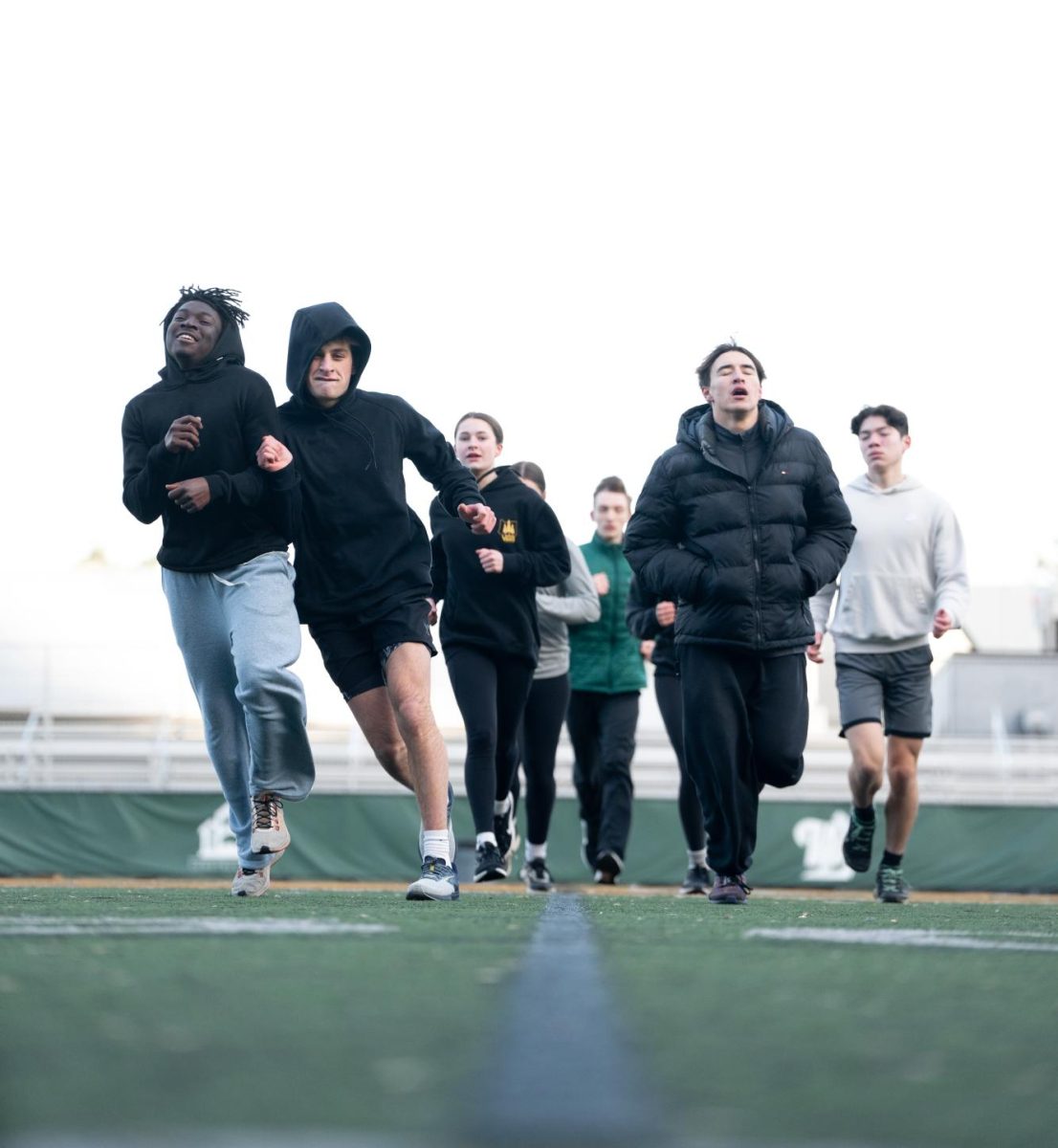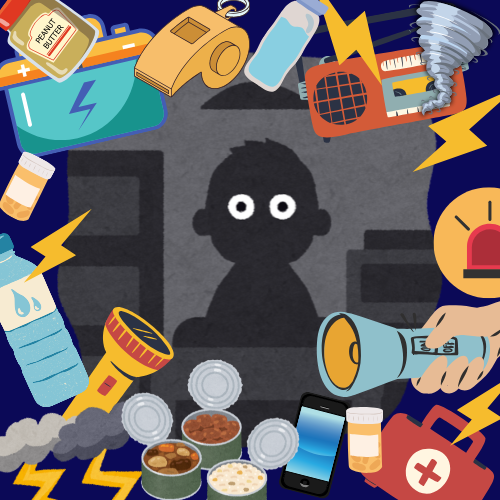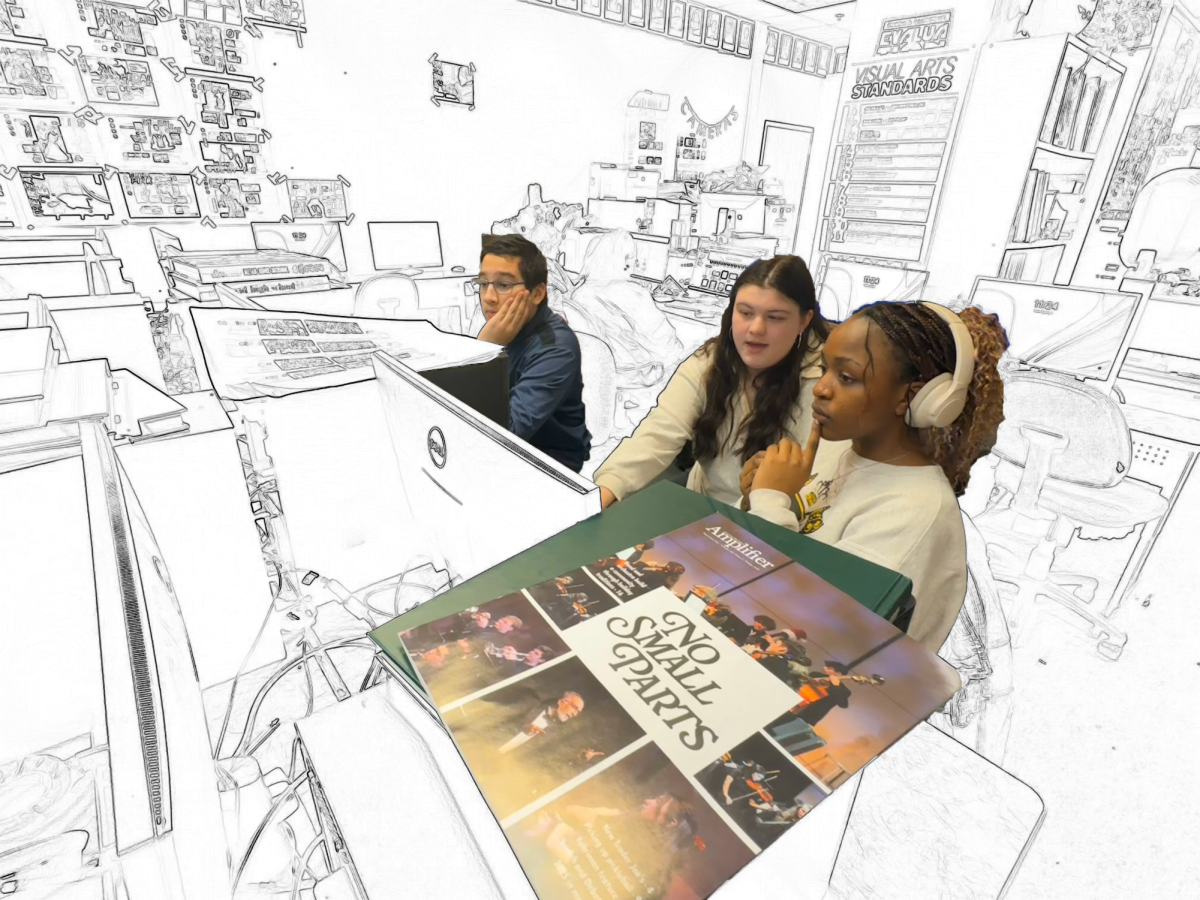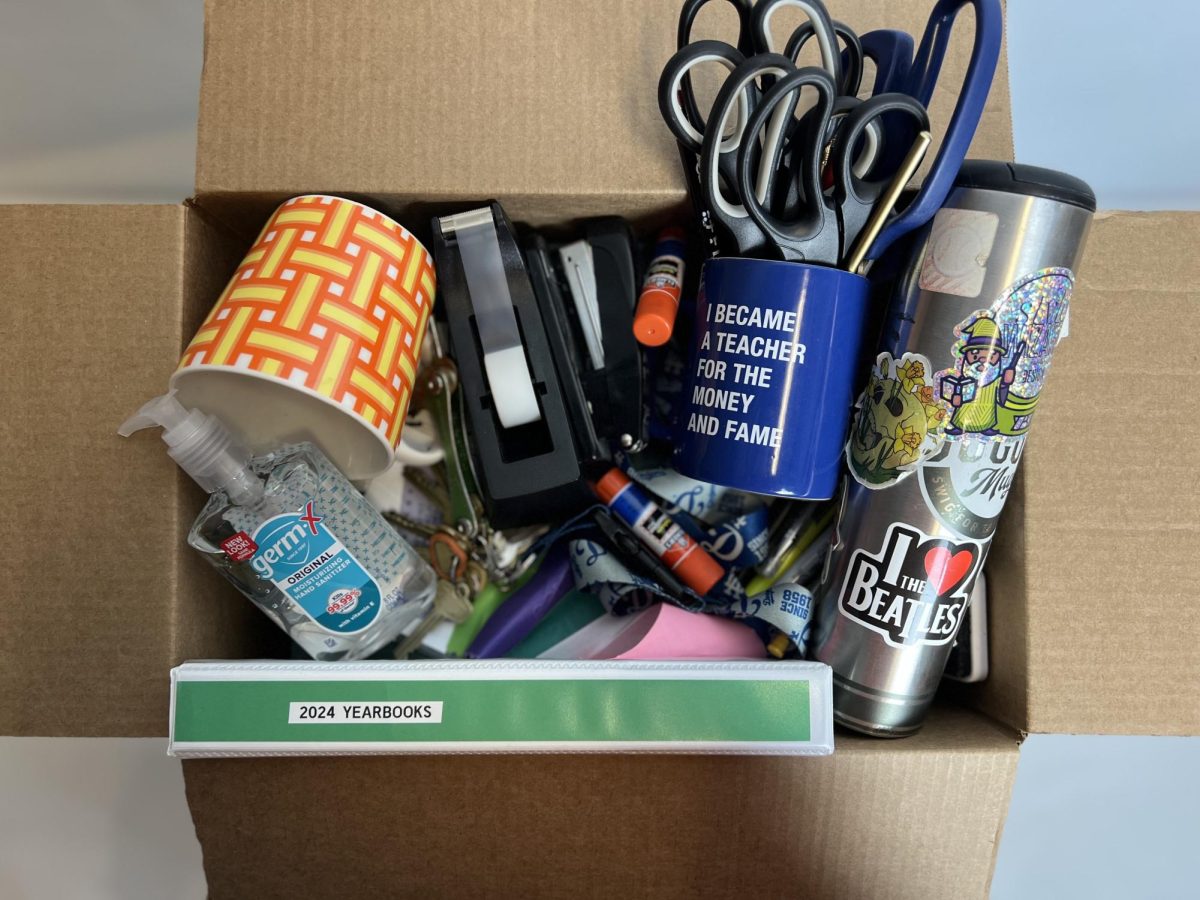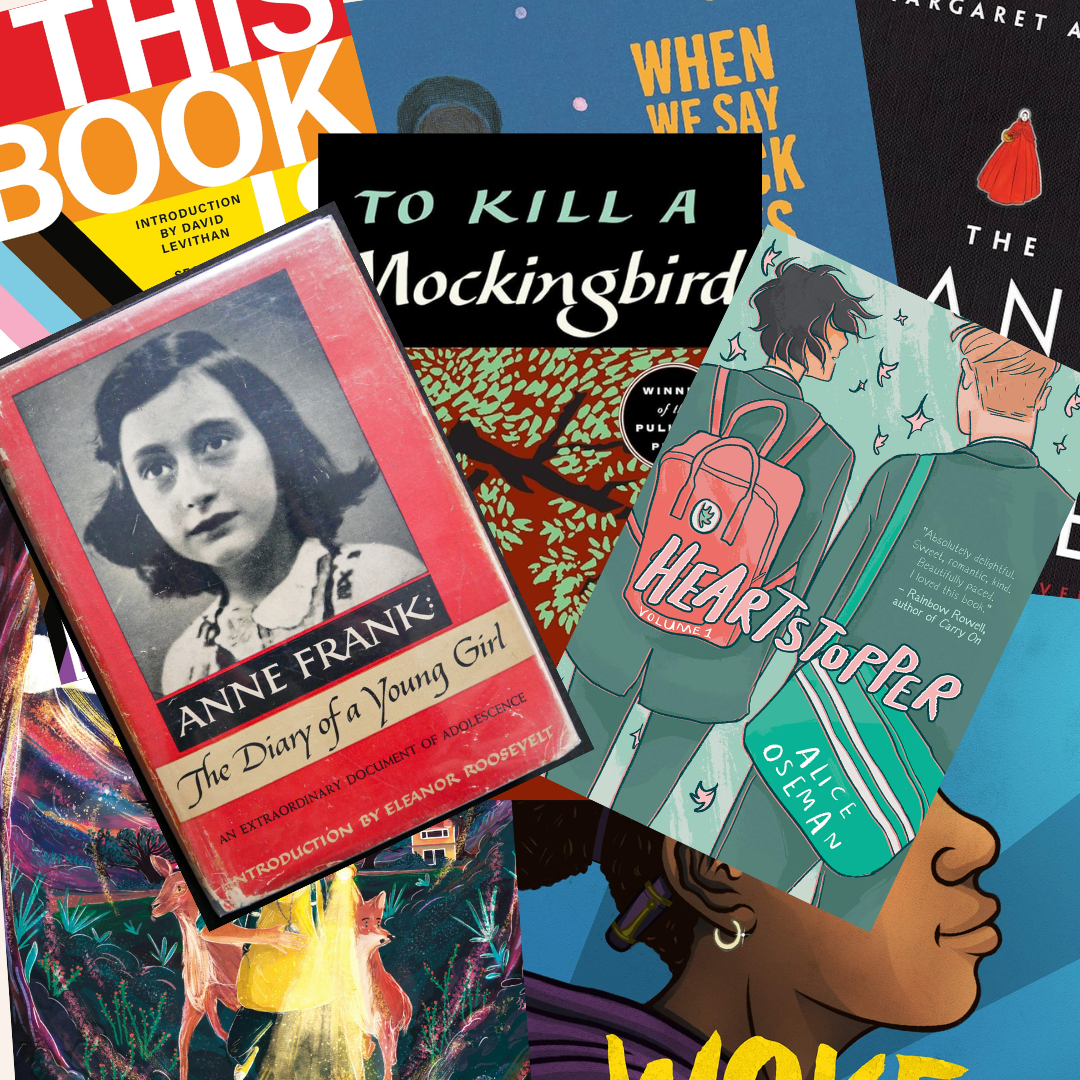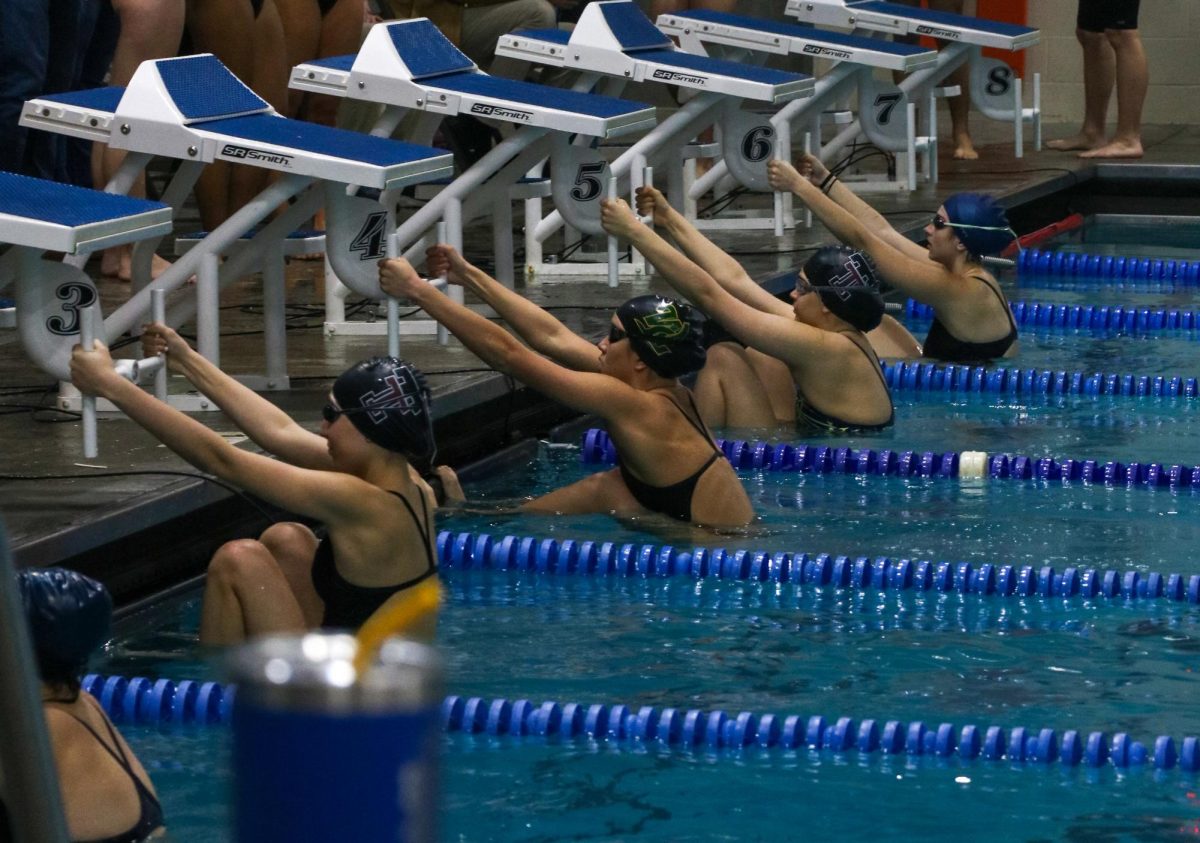Can I use ChatGPT and still be ‘present for learning?’

School in 2020 was a blur for me. In the latter half of seventh grade and most of eighth, I “attended” class while still in bed. I would simply roll over, unplug my laptop to join a Zoom call, and fall asleep again because the night before, I stayed up on TikTok until 4 a.m.
My performance in school suffered due to a decreasing attention span and reliance on technology to think for me. If I felt tempted to Google the answer to something, I did, because it was right in front of me.
According to NPR, COVID-19 caused rates of cheating to go up more than 50% at Ohio State University. Additionally, a study done in the United States found that students who took part in a hybrid learning model were at a disadvantage compared to students who were learning in person. The reliance on technology during online learning did not go unnoticed, and the effects are likely to still be lingering on students today, whether that be in their study habits or academic track.
Our school has since adopted a “present for learning” philosophy based on data suggesting that students’ performance goes up when phones are completely away. But now, artificial intelligence (AI) is everywhere. Instagram has it, Google has it, Spotify has it, and even Snapchat has an AI assistant that you can have a conversation with.
While its convenience has been argued, the place of AI in school has been just one controversial aspect of the technology. While Google helped me during COVID-19, I can’t imagine how much less thinking I would have done if I were relying on ChatGPT, which summarizes a Google search even faster.
Although efficient, researchers at Microsoft found that the use of AI for work “can inhibit critical engagement with work and can potentially lead to long-term overreliance on the tool and diminished skill for independent problem-solving.”
Although we’re back in person for school and phones are away, the use of AI, such as ChatGPT, is stopping students from being truly present for learning.
10% of the freshmen and sophomores at our school (83 total) were surveyed, and nearly 60% claimed to have an account with ChatGPT. Some of the 40% who did not instead claimed to use ChatGPT without an account or use other similar resources.
What shocked me was that over half of the respondents said they have turned in a school assignment that they used AI to complete. This included using AI to write entire parts of the assignment, generate images for a poster, search for information, or even just edit their work and revise sentences.
When asked to elaborate, many respondents explained that they needed to look up answers about a book, edit their language arts writing, or come up with ideas. For the most part, while AI did help, it seemed that the student still attempted to complete the assignment on their own.
While that strategy is perhaps less offensive than turning in an assignment of 100% AI-generated content, it still brings up an interesting moral situation: How important is idea generation to the finished product?
Dr. Amarou Yoder, AP Language and Composition teacher, has since adapted her grading process due to the increasing accessibility of AI for high school students. The first time she noticed a student using AI in their writing was a few years back.
“I had an essay from a student, and I was just like, ‘This is not a high school student’s paper. It doesn’t reflect what I know about how high school kids write,’” Yoder said. “Every sentence was a complex sentence— that’s just not how we write. [So] I started researching AI detectors, [but they] use AI to detect AI, so it’s not a perfect thing at all.”
While Yoder doesn’t grade students’ essay outlines or planning, she still believes that idea generation is a key part of the drafting and writing process.
“[Students say] ‘I’m just using it to generate ideas, and I would have come to this on my own.’ Well— yes and no,” Yoder said. “The message that you’ve essentially sent to yourself as a writer is that [you] can’t do the hard thinking that starts a piece of writing.”
This idea parallels the data from studies that show that dependence on AI decreases critical thinking skills, even if it’s only used for mundane tasks.
“It’s a kind of learned helplessness where you’re relying on something to do the thinking work,” Yoder said. “You’re relying on it so much that you discover that you can’t write about this topic [and] it’s a garbage topic because AI came up with it. [Then] you don’t have anything to fall back on.”
Part of the readability issue with student papers written by AI is not only the sentence structure, but also that ChatGPT fails to consider some of the things Yoder teaches about writing for an audience.
“I want [students] to be thinking about me as [their] reader. I’m not an abstraction, I’m not nameless. I’m very much this woman who loves cats and lives with her parents. That’s the audience here,” Yoder said. “In order for your writing to be effective, you have to adapt that to me. That’s something that AI just can’t do yet; Take in the complexity of an actual, real collection of human beings.”
For writers such as myself, or other creative types, the future looks bleak with AI in it. Each day comes with a new, horrifying advancement in technology: “Movies” made from only AI, Deepfakes that make reliable online news clips few and far between, and AI “artists” who rely on generative technology that is trained off of the work of human artists.
As a journalist, I’m personally invested in protecting the process of human writing. I don’t mean it as a way to look down upon those who use technology to take shortcuts, because I’ve seen AI used as a tool plenty of times in non-harmful ways. But at the same time, if I had kept on the Google-reliant no-integrity path I was on after going through school in quarantine, I think my language skills would be lagging far behind today.
All this to say: There needs to be a school-wide change in how we do things, a way to embrace this technology without letting it stunt the growth of young minds.
According to the freshman and sophomore group polled, 96% of those who used AI for assignments were not caught by their teachers and did not face consequences. With the increased use of this technology, academic integrity is at the highest risk it’s been since nationwide online school during COVID-19.
To protect students from a loss of critical thinking skills and strong integrity, our policies must evolve to utilize this technology responsibly, but keep the harmful side effects at arm’s length.
To hear more on the topic of AI from Dr. Amarou Yoder, tune in to the latest episode of the West Linn Weekly Wakeup, hosted by Multimedia Resource Editor Clara Wood and Coverage Editor Nicholas Hull.
Your donation will support the student journalists of West Linn High School. Your contribution will allow us to continue to produce quality content by purchasing equipment, software, and continuing to host our website on School Newspapers Online (SNO).










